UNESCO project envisions twin goals of heritage preservation, job creation
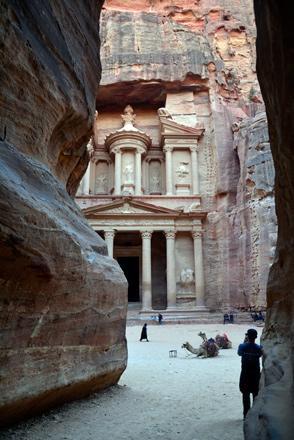
The Jordan Times
AMMAN — UNESCO project “Employment Opportunities for Cultural Heritage Safeguarding in Jordan” aims to invest in cultural heritage preservation while creating short-term job opportunities for Jordanians and Syrians, according to Giorgia Cesaro, senior project officer.
The project, started in 2019, seeks to contribute to sustainable socio-economic development by utilising culture as a source of resilience, Cesaro said.
As the project is still ongoing, UNESCO has modified its programmes to provide a healthy working environment during the pandemic. To make this possible, UNESCO ensures that its projects comply with Jordan's Ministry of Labour regulations about the safety measures to be implemented, Cesaro said.
“The project's goal will be met by basic restoration and protection of two cultural heritage sites, the village of Rihab (Mafraq) and the Petra World Heritage Site (Maan), for heritage preservation and tourism purposes in addition to the development of short-term job opportunities for Syrian refugees and Jordanians living in host communities through a Cash for Work approach,” Cesaro told The Jordan Times.
The project always targets the most vulnerable segment of the population, such as the local communities living in the vicinity of the site in Petra and vulnerable Jordanians and Syrian refugees living in the vicinity of Rihab, Cesaro said.
“The project is also supporting the Department of Antiquities in ensuring better preservation of heritage sites in Jordan and their improved presentation for tourism purposes,” Cesaro added.
The project is targeting the provision of short-term job opportunities to 270 workers, 150 in Petra and 120 in Rihab, of which 20 per cent will be women and 4 per cent will be people with disabilities. In Rihab, the project’s target is to engage up to 50 per cent Syrian workers,” Cesaro said.
At the Petra World Heritage Site, two tourist trails are being rehabilitated and better presented to tourists, and the top of the Siq (the natural gorge leading to the ancient site) is being cleaned from debris and loose rocks to better protect the site against rock fall hazard, the project officer said.
In Rihab, activities are taking place at the Church of St. Mary as well as the Church Complex of St John the Baptist and Priests Sergius and Procopius.
“The key goal is to keep heritage buildings in good condition in the areas where they are being worked on (ancient Nabataean structures, Byzantine mosaics, etc…). Second, through the delineation of tourist paths and the preparation of interpretation panels for the places where work is being done, measures are made to make the sites more understandable for tourists,” Cesaro added.
The Cash for Work Water (C4WW) project is implemented by the German Agency for International Cooperation (GIZ) and it is commissioned by the German Federal Ministry for Economic Cooperation and Development.
Aladdin Hiyasat, component manager of soil erosion prevention measures at GIZ, said: “The supported measures benefit refugees and host communities alike. This project contributes to rehabilitating antiquity sites, establishing a secure water supply and employing refugees and people in need from the host communities. It also promotes social cohesion and sustainable development in the region.”
According to Hiyasat, GIZ and UNESCO jointly implement the measures in Petra and Rihab.
“The project is committed to delivering medium and long-term employment prospects, mainly by providing Post Employment Services and on job trainings. The project provides short term opportunities in the areas of preservations and rehabilitation of antiquity sites and conservation of water dams through soil erosion prevention measures,” Hiyasat told The Jordan Times.
Throughout both components, more than 9,000 work opportunities have been provided to vulnerable Jordanians and Syrian refugees, of which 20 per cent are females, Hiyasat noted.
The Association for Volunteers in International Service (AVSI) is a nonprofit organisation which partnered with the UNESCO on the project. AVSI’s activities focus on supporting the most vulnerable groups among refugees and hosting communities, according to its website.
Nicola Orsini, AVSI country representative, highlighted the importance of the partnership as the project had a great positive impact on the economic situation by creating jobs for the most vulnerable.
Orsini indicated that the project helps raise awareness of the local communities and Syrian refugees regarding the importance and value of cultural heritage.
“The involvement of women is really important as it has a great impact on their lives as they are able to provide for themselves and their families, therefore becoming vital members of society. And they gain new skills at the same time,” he added.
Latest News
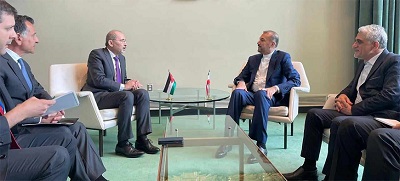 Safadi, Iranian counterpart discuss war on Gaza, regional escalation
Safadi, Iranian counterpart discuss war on Gaza, regional escalation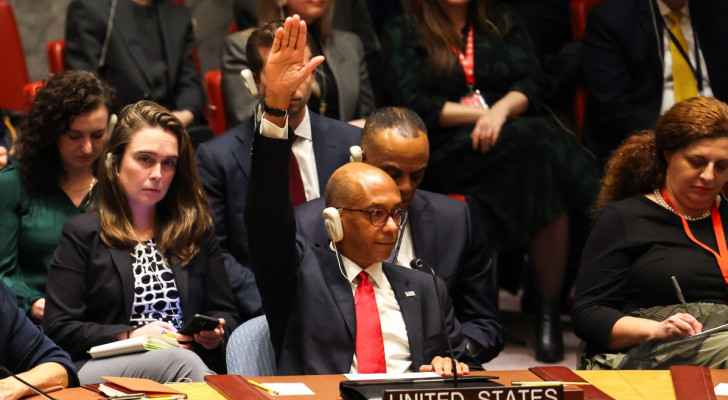 US vetoes Security Council resolution on full Palestinian UN membership
US vetoes Security Council resolution on full Palestinian UN membership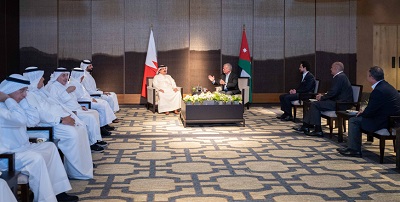 King, Bahrain monarch stress need to maintain Arab coordination
King, Bahrain monarch stress need to maintain Arab coordination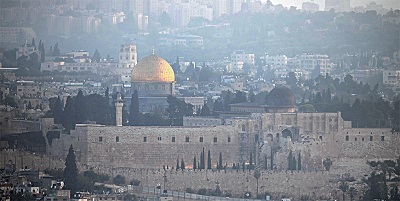 Security Council to vote Thursday on Palestinian state UN membership
Security Council to vote Thursday on Palestinian state UN membership Dubai reels from floods chaos after record rains
Dubai reels from floods chaos after record rains
Most Read Articles
- Jordan urges UN to recognise Palestine as state
- Senate president, British ambassador discuss strategic partnership, regional stability
- JAF carries out seven more airdrops of aid into Gaza
- Temperatures to near 40 degree mark next week in Jordan
- Safadi, Iranian counterpart discuss war on Gaza, regional escalation
- UN chief warns Mideast on brink of ‘full-scale regional conflict’
- US vetoes Security Council resolution on full Palestinian UN membership
- Google fires 28 employees for protesting $1.2 billion cloud deal with “Israeli” army
- Biden urges Congress to pass 'pivotal' Ukraine, Israel war aid
- Israeli Occupation strike inside Iran responds to Tehran's provocation, reports say